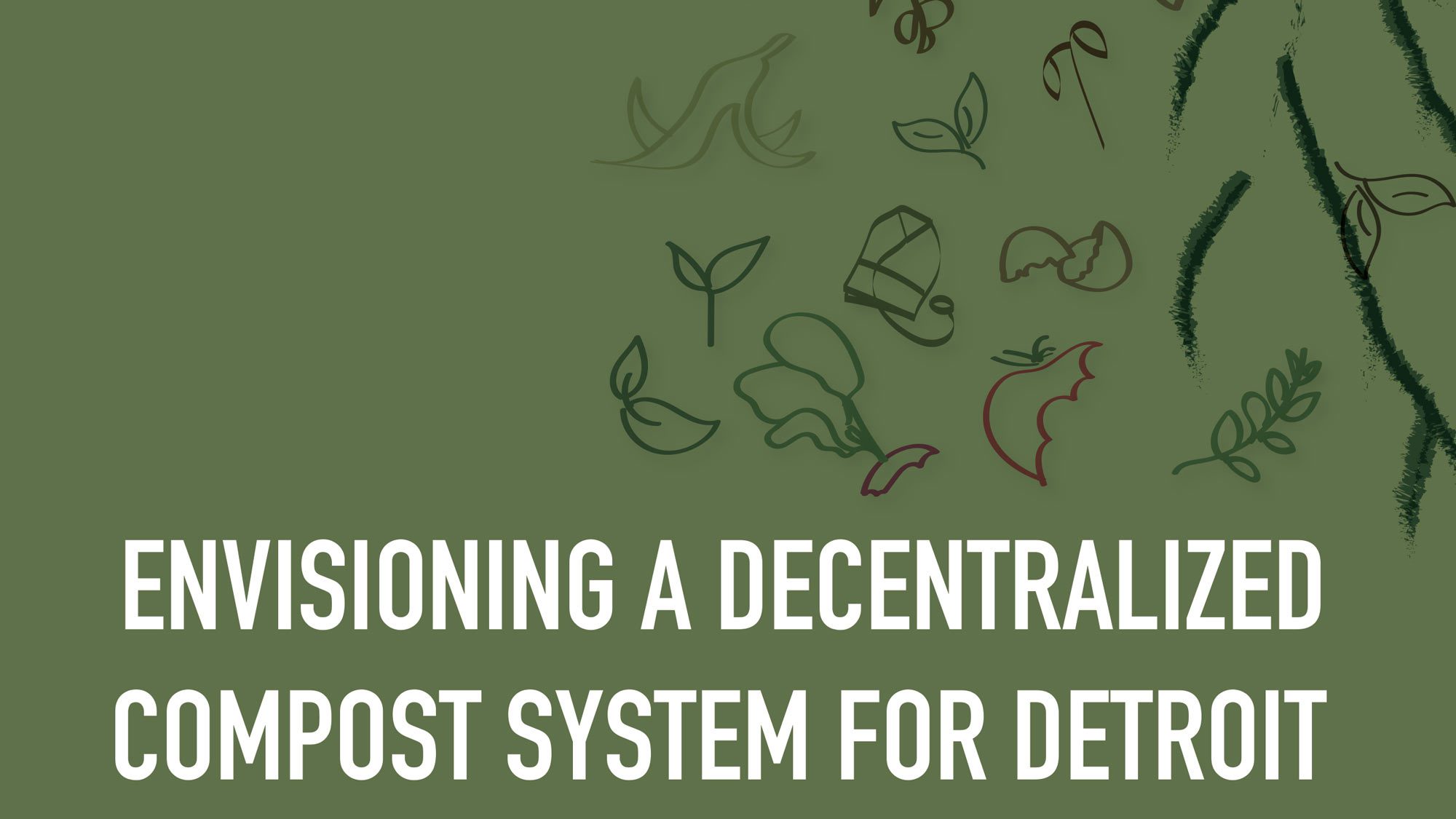Abstract
Over the past decade, new businesses and non-profits have formed with missions focused on repurposing food scraps as a means to reduce carbon footprints, remediate environmental contamination, and create closed loop economies. City leaders are also becoming aware of the multiple benefits of composting, apparent in the 2013 Detroit Urban Agriculture Ordinance which recognizes composting as a legitimate land use and the 2019 Detroit Sustainability Action Agenda which includes an action item to “launch a residential composting pilot program.”
This project builds upon efforts led by the non-profit FoodPLUS|Detroit to explore the context for establishing a citywide, community-scaled, decentralized compost network in Detroit through discussions with stakeholders and site observations, a review of best practices, interviews with national and local composting leaders, and analyses of spatial and economic scenarios. Short- and long-term recommendations suggest ways that community engagement, local and state policy change, and partnership building can shift the narrative of waste management to resource recovery while establishing greener neighborhoods, building healthier soils, reducing stormwater runoff, creating local jobs, and empowering communities.
Students
Sean Burnett, David DeBoskey, Michael Friese, Emily Korman, Megan Rigney, Anikka Van Eyl, Keerthana Vidyasagar and Meixin Yuan
Faculty
Lesli Hoey, Eric Dueweke
Details
- Community Partners: FoodPlus|Detroit, Detroit Future City
- Location: Detroit, Michigan
- Pages: 207
- Year: 2020

